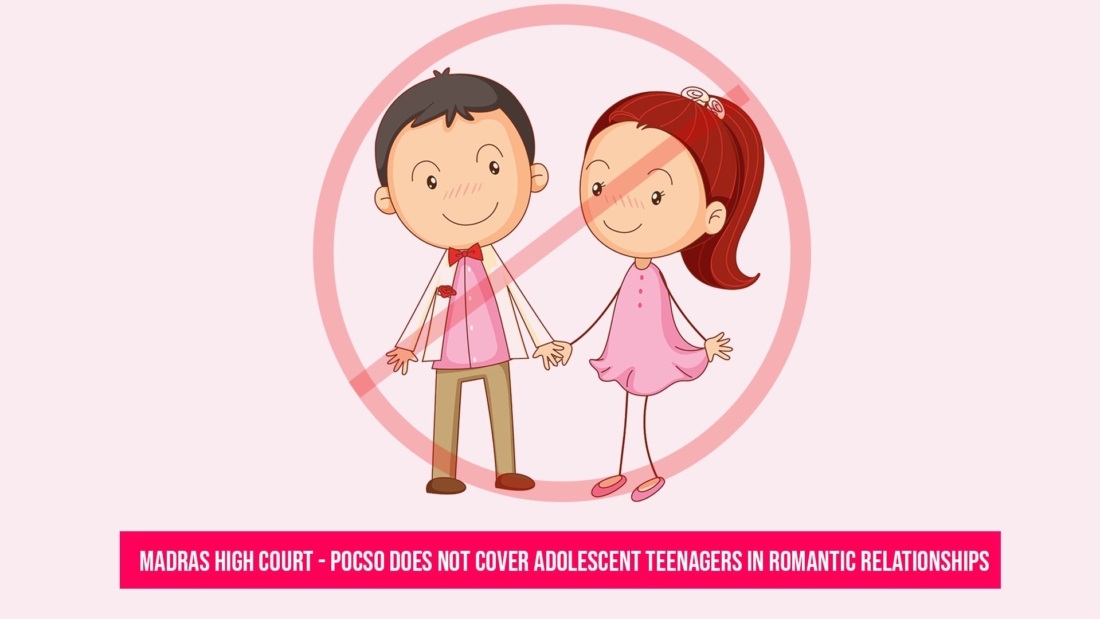In what seems a striking judgment, Justice N Anand Venkatesh quashed a case stating that the Protection of Children from Sexual Offences Act (POCSO Act) does not intend to bring within its scope, cases involving adolescent teenagers in romantic relationships. The Madras High Court on 29 Jan, 2021 heard a peculiar case which was filed to quash the proceedings lodged against a man for having eloped with a girl in her early twenties and consummated the relationship. Now the petitioners (the girl and her mother) were not interested in pursuing the criminal proceedings any further.
The complaint filed against him was under Section 482 of the Code of Criminal Procedure (CrPC) involving charges levelled under the POCSO Act and the Prohibition of the Child Marriage Act, 2006. The Court observed that it was never the intention of the POCSO Act to punish an adolescent boy of 20 years as an offender for entering into a relationship with a minor girl. Detailing the statement, the Court opined that during the age of hormonal and biological changes, the adolescent boys and girls should receive the support and guidance of their parents and such incidents should never be perceived from an adult’s point of view as such an understanding will lead to lack of empathy.
The Judge deliberated upon the fact that the offences under the POCSO Act are serious and the Court is not turning a blind eye to such cases but at the same time expressed concerns that the law is being misused by certain sections. Such cases against teens or adolescents are filed without understanding the implication of the severity of the enactment, is a matter of great concern to the conscience of the Court. The Court also stressed on adolescent romance as an important developmental marker for adolescents’ self-identity, functioning and capacity for intimacy.
The Court urged the legislature to make appropriate changes or amendments in law so that adolescent relationships are treated differently under the prevailing law in order to keep pace with the changing societal needs. The Judge also laid its observations on the case of Sabari v. Inspector of Police, wherein it was recommended by the same Court to change thedefinition of ‘Child’ under Section 2(d) of the POCSO Act from18 to 16.
The Court hinted that had the facts been different or the victim would have been made to believe that the relationship is consensual when it was not, then the judgment could be different. At last, the Court noted from the accused’s submission that the accused had eloped with the victim girl upon her urging and the girl told the Court personally that she was in a love affair with the accused. Also, the parents of the girl later expressed that they did not wish to pursue the criminal charges, and preferred that their daughter get married and settled in life. Thus the Court quashed the case while also opining that the matter was individual and personal in nature.
– Adv. Shivangi Prasad – Corporate Lawyer, External Member & Trainer, Head – Legal & Compliance, Partner Child Safety at Work, & Vaishali Jain, Paralegal – Child Safety at Work
 Cart is empty
Cart is empty 

